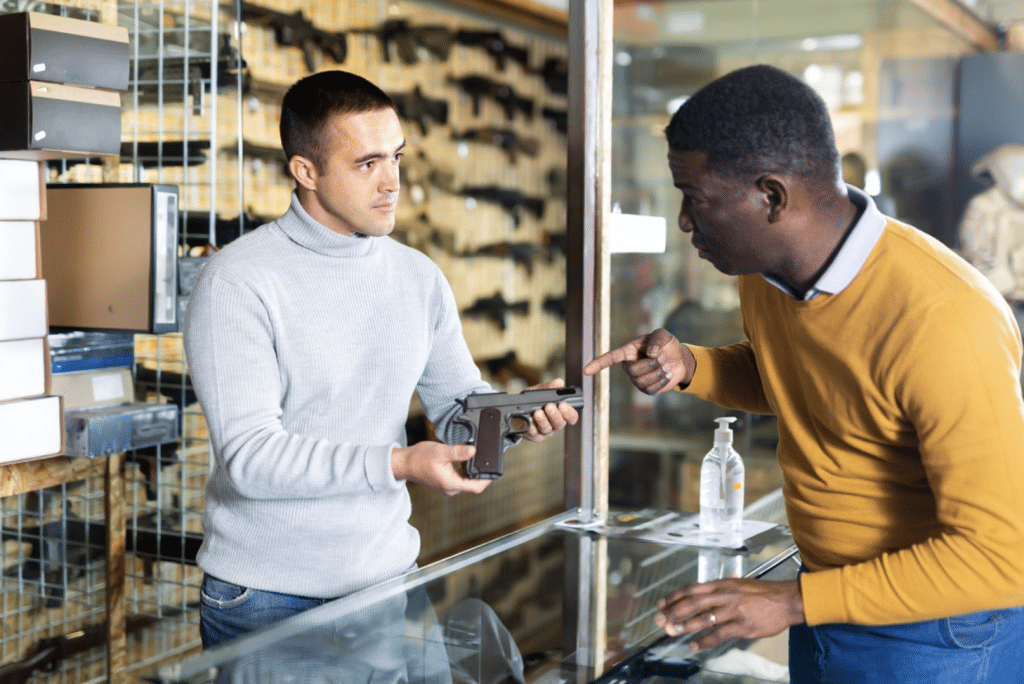Owning a firearm comes with significant responsibilities, one of which is the safe and legal disposal of the gun when it is no longer needed or desired. Disposing of a firearm improperly can lead to serious legal consequences and potentially dangerous situations. With the right knowledge and approach, firearm owners can ensure they comply with laws and protect both themselves and the public. This guide aims to provide a comprehensive look into the safe disposal of used guns.
The importance of safely disposing of firearms cannot be overstressed. Each year, improperly disposed of guns can end up in the wrong hands, leading to accidental shootings or criminal activities. Whether you are an experienced gun owner or have inherited a firearm, knowing how to safely dispose of a gun is essential. This guide will cover everything from understanding disposal laws, reasons for disposing of a firearm, various disposal methods, and the legal nuances involved, ensuring you can make informed and responsible decisions.
Understanding Gun Disposal Laws
Before any action is taken with your firearm, it is crucial to absorb the legal framework surrounding gun disposal. Gun disposal laws vary widely between different jurisdictions and can influence your choice of disposal method. Federal law generally governs the overall sale and transfer of guns, but state and local laws can impose further restrictions or procedures. For instance, some states require that all gun transactions go through a licensed firearms dealer, while others may permit private sales with specific requirements. Investigating these laws through state government websites or consulting with a lawyer can prevent legal pitfalls and ensure compliance.
Reason for Disposal
People dispose of firearms for various reasons. Common scenarios include inheritance of weapons that the new owner may not want, the decision to reduce one’s personal arsenal, or legal necessity due to changes in local or state laws. Understanding your reason for disposal can guide the selection of the most suitable and legal method for getting rid of the firearm.
Preparing the Firearm for Disposal
Safety is paramount when preparing to dispose of any firearm. First and foremost, ensure the gun is completely unloaded. Check the chamber, the barrel, and any magazines that are either in or separate from the gun. Once you have confirmed the firearm is unloaded, engage the safety lock if available, and consider using a gunlock or removing the firing pin before handling or transportation. Documenting the firearm’s make, model, and serial number can also be advisable, especially if your chosen method of disposal requires these details.
Selling the Gun to a Licensed Dealer
One of the most straightforward methods of disposing of a firearm is selling it to or through a licensed dealer. Federal Firearms Licenses (FFL) holders are individuals or businesses authorized to sell and transfer firearms legally. They will handle all mandatory background checks and paperwork, guaranteeing compliance with federal laws. Pricing can vary based on the gun’s condition, make, model, and market demand, so consider getting a few quotes before deciding on a dealer.
Trading in Your Firearm at a Gun Shop
If selling directly doesn’t appeal, trading it in at your local gun shop might be an alternative worth considering. This option involves exchanging your firearm for store credit or another gun. Gun shops will also handle all the legal requirements for the transfer. Ensure you understand the shop’s policy on trade-ins and their valuation process.
Using a Gun Buyback Program
Gun buyback programs are often hosted by local police departments or governmental organizations, providing a no-questions-asked way to dispose of firearms. While they might not offer the best financial return, they are typically straightforward and designed to promote public safety. These programs occasionally offer incentives like gift cards or vouchers in exchange for the firearms, which are usually destroyed after collection.
Donating to Museums or Educational Institutes
For those with historically significant or antique firearms, donation to a museum or educational institution might be a method of disposal. This ensures the firearm is preserved and used for educational purposes while also clearing out your personal inventory. Identify potential institutions interested in such artifacts and inquire about their acceptance policy and any legal implications.
Deactivation and Destruction
In cases where no other form of disposal is suitable, or if you simply want to ensure the firearm can never be used again, deactivation or destruction might be the way to go. Professional companies can deactivate guns by removing critical components thereby rendering the firearm inoperable. Alternatively, some law enforcement agencies offer destruction services, ensuring the gun is disposed of safely and legally.
Selling a Gun Online
Selling a firearm online can be done through sites like cashforarms.com that cater specifically to gun sales, or via online general marketplaces that permit them. However, it’s essential to follow the strict guidelines laid out by the site and the law. Most online sales require the eventual transfer to go through an FFL. Be sure to communicate openly with potential buyers about the requirement for background checks and ensure you follow through with all legal processes.
Handling Unregistered or Illegal Firearms
Disposing of unregistered or illegal firearms can be particularly tricky, as simply turning them over to authorities could potentially lead to legal troubles. However, it is crucial for safety and compliance with the law to handle such situations correctly. Consult a legal expert or a law enforcement official who can provide guidance on the safest and most legal way to dispose of these firearms.
Conclusion
The disposal of firearms must be handled with great care and responsibility. Whether you are selling, donating, trading, or simply wishing to dispose of a firearm, understanding and adhering to the law is paramount. We encourage all firearm owners to prioritize safety and legality, ensuring these weapons do not contribute to unlawful activities or unfortunate accidents. By following the comprehensive steps and options outlined in this guide, gun owners can responsibly and effectively manage the disposal of their firearms, promoting a safer community for everyone.
